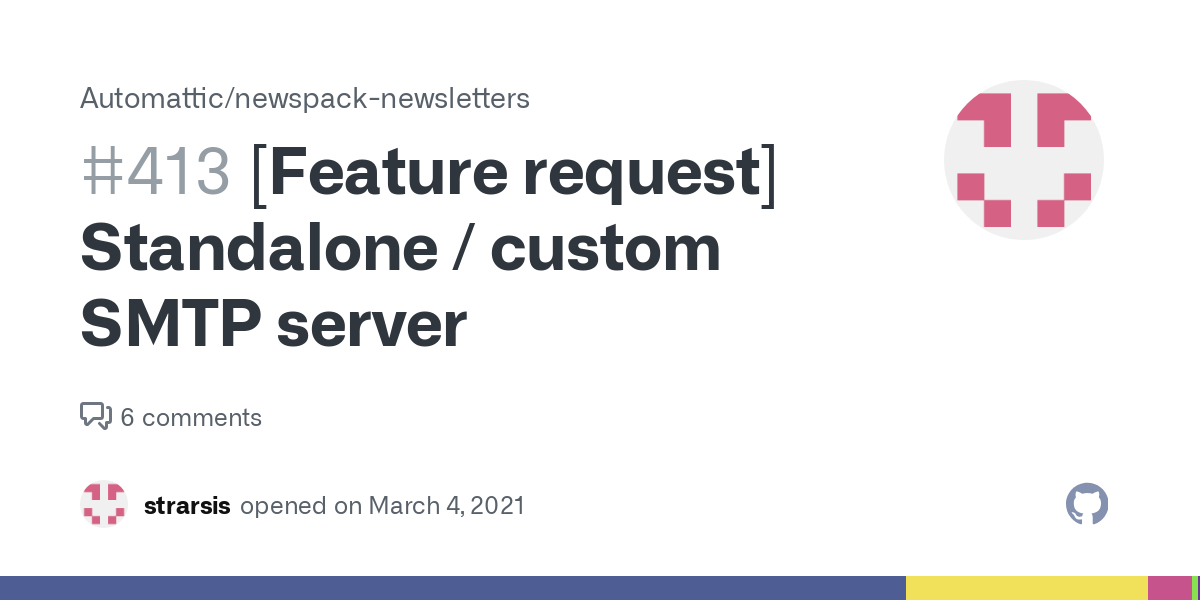Why Coupled CMS Platforms Like Ghost Can't Deliver a Truly Open Core

When we talk about a traditional or coupled CMS, it is a package that was developed and marketed for use as designed, according to the manual written for you, the end user. This applies equally to all, regardless of the license, whether it is a free, open-source CMS or a non-free, proprietary, closed-source one.
Depending on the project timeline and code maturity, you may be offered a coupled CMS as an end-user in the "core" package, which you can self-host and later extend using modules, plugins, or by integrating other components with the CMS.
Founded in April 2013, Ghost is a modern CMS that comes with everything, including team management, members, comments, an editor, built-in newsletters, custom subscriptions, quality free themes, and much more. It is free, open-source software. You can host it on your own servers with no limitations. Ghost is developed by a nonprofit organization called the Ghost Foundation.
We set Ghost up as non-profit foundation so that it would always be true to its users, rather than shareholders or investors.
It looked great on paper, yet I wrote a critical post about it. It came across as a scathing diatribe, but I promise it wasn't intended that way. I only shared what myself and other Ghost admins have been facing for years. The Ghost Foundation claims to be true to its users. The truth must be told firmly if it is to be heard.
So, what's wrong? Nothing, yet everything.
Flawed idea of Truly Open Core in a coupled CMS
The ideal open core of a CMS is free, open-source server software with no bloat, predefined providers, or presets just a vanilla experience that lets you set all your own options. The concept of a flawless open core is flawed. Whether it is freely licensed or not, a CMS core cannot be a perfect fit for everything and everybody.
A coupled CMS is an all-in-one solution that offers some of the best options, as determined by the development team. Reputable CMSs are mostly built in-house, with some components ported or integrated from existing, popular options. Also, no new CMS can develop its own email service or server hosting provider.
In my opinion, the development team gains better experience with a particular service provider over the years after trying out a couple of options. This provider later becomes part of their Pro hosted service. They offer a CMS core that we can host on our own server. While it has many amazing features, there are sometimes issues like bloat and pre-defined or hard-coded settings that cannot be changed. For example, Ghost CMS comes hard-coded with Mailgun for newsletters and unnecessarily includes the paid image editor Pintura.
Ideally, I would like a vanilla Ghost CMS core with all the features, but without any bloat, hard-coded settings, or pre-defined settings. This is what is flawed. Confused? More on this later.
The problem with such idealism is that we forget about the development team and their vision for the CMS. It is already a set of things put together by them. It's not a bare-bones core like Drupal Core, which isn't ready to use out of the box. A coupled CMS is a full website solution for end users with tremendous extensibility potential.
I don't particularly like Pintura's integration with Ghost or their lock-in with Mailgun. That's just my opinion of their CMS. I can always disable those integrations and do my own thing.
WordPress is a truly open CMS. Right? Kind of, but not really!
To be clear, by a truly open CMS, I mean one that comes with no pre-defined or hard-coded settings and no bloat. One of Ghost's most unique features is its built-in newsletter, which is unfortunately locked in with Mailgun. There are other cool Ghost integrations, but let's keep it simple for now.
WordPress is the cleanest open CMS, except it lacks the built-in newsletters that Ghost offers. Thankfully, you can easily extend WordPress with a free plugin by Automattic, the company run by the original author of the WordPress CMS.

Newspack is a project of WordPress.com funded in part with generous support from the Google News Initiative, the Knight Foundation and The Lenfest Institute.
Problem solved? Isn't it? WP CMS is now officially the best open-source CMS with no bloat or lock-in. Just hold your horses. Let's take a closer look at this newsletter plugin. Even if we ignore the fact that it isn't an official WordPress Foundation plugin, it's still fairly close to WordPress's development for secure integration and it should have adequate resources to be a secure plugin.
It sounds like the perfect combination to beat Ghost, which has a rather restricted newsletter feature and a monopolistic service provider hard-coded into its core. Isn't it?
However, this plugin by Automattic doesn't automatically make WP a Ghost CMS killer, even though it is a tightly integrated newsletter program. Like Ghost, it doesn't allow you to use any service provider, only the three supported ones: ActiveCampaign, Constant Contact, and Mailchimp.
Has the community tried? There is a feature request on GitHub to allow a standalone/custom SMTP server. It has been open since March 19, 2021. It has been over four long years now. It is still open, awaiting further action or response.

So, which CMS is worse now, Ghost or WordPress? If you ask me, neither; they're both in the same boat. As discussed before, it's a flawed idea to hunt for an ideal open core when it comes to popular coupled CMSs.
Why does WordPress suck less?
If one plugin didn't work for you. You can quickly find another newsletter plugin from a reputable, seasoned WordPress developer, such as Mr. Stefano Lissa, and use it with any bulk email SMTP provider of your choice.

It offers most functions for free, with a premium option available if and when you need it.
Business Model
As mentioned above, it's not entirely Ghost's fault. I doubt they will provide Ghost Core without preloaded integrations, which could be perceived as bloat, and a fully open newsletter integration that allows you to use your own SMTP servers. Ideally, this would be perfect, but it's unlikely to happen.
In reality, we now know that the WP Foundation, the community, and Automattic won't offer it. It's not that they can't technically. In a nutshell, WP sucks too, but it sucks less than the competition.
Knowing this, I don't see Ghost CMS as the villain. It's just that Ghost is not as modular as WordPress. With WordPress, you have a plugin system and can literally find a plugin for the job or ask someone to write one for you. Whether that plugin is as secure as one offered by a known vendor is a different tale altogether.
If Ghost has no affiliation, sponsorship, or referral agreement with Mailgun, why don't they just offer a truly open CMS without such hard-coded limitations? Wouldn't that make them stand out and put them far ahead of the competition? Doing so would certainly attract more users from other popular platforms, who would then try to win some of them back by doing the same.
Perhaps it's not about the money; maybe it's about product management and focus. Their model is simple: they offer everything as a CMS. If you can't manage it all yourself, there's a hosted Pro offering, which is apparently their source of revenue.
Are you getting a better price by hosting with them than you would with individual Mailgun or other subscriptions? Unless you are strictly into self-hosting, it is obvious who you would pick. They don't have a monopoly on commercially hosted services. Other hosted Ghost providers have already entered the scene.
Therefore, we should not expect a truly open core with no bloat or hard-coded settings. Like any other project, they need funding for future development.
As a team, we should appreciate Ghost, after all, it's a small team. The Ghost Foundation still needs to pay developers, for servers, bandwidth, marketing, etc. There are a lot of expenses in this business. Please understand the business intricacies. They simply cannot expand their integrations the way we are asking. That would mean more open issues and complexities for a small team to handle. They probably don't want to create more problems and are happy with how they want this CMS to be.
Honestly, we can voice our opinion on hot subjects like this and get a ton of clicks, but don't expect things to change tomorrow or even in a decade.
You need to understand that it's their core business model. Ghost does not have a plugin system, and this has been intentional. Therefore, you need extensive knowledge to hack Ghost and make it the way you want. It probably leans towards end users who might want to subscribe to Ghost Pro instead of self-hosting.
In some other popular CMSs, such as WP, the difference is that there are billions of users and over a million developers, each of whom excels in a different industry.
Assuming that the primary contributor to the world's most popular CMS, Automattic, makes around $500 million per month, it would be surprising if Ghost made more than $500,000.
With the Ghost CMS, there is a very small core team, and the developer needs to be an expert to implement everything with such a small team. They probably don't have time to address individual frustrations with the CMS. Their best suggestion for most issues on the forums is to purchase the Ghost Pro service, though they might not explicitly say so. Again, it is a legitimate business model.
Your future feature set also depends heavily on threats to business revenue.
Whenever a new CMS is released with unique, appealing features that the currently popular CMS lacks, it gains traction. The new player will certainly compete with them, and it will likely eat into their market share.
Let's put Ghost CMS aside and take a look at what's actually going on in the CMS world.
In layman's terms, that's how it works. When Medium was released, it started eating WordPress's lunch because it had a nice GUI editor. So, to stay relevant, Automattic created the Gutenberg editor. Then, when Substack came out, it started eating WP's lunch because it offered newsletters. Automattic then created Newspack to stay relevant.
Do you see the pattern? WordPress stays relevant because, when the competition introduces something new, Automattic or the Foundation adopts it.
Ghost's business model is different. I'm not saying they're following the herd. They have included most things from other popular CMSs, but they aren't keen on facilitating integration the way a standard module or plugin system does.
In any case, it takes years of development to reach a high level of quality, especially when you have strong opinions about the various components of a modern CMS.
Pick one: No strings attached (DIY) or Batteries included (Coupled CMS)
In general, there are two main ways to publish your content on the internet.
Batteries included (Coupled CMS like Ghost or WP)
One option is to pick a CMS like Ghost. In this case, you have to stick to what the development team thinks is best for you, regardless of your choice.
Remember, if you choose a coupled CMS, it comes with everything you need. For example, Ghost, a modern publishing platform, has everything built in, including newsletter integration with a popular, ready-to-use provider. If you find it difficult to manage everything yourself, there is a hosted Ghost Pro service. Ghost will manage the WAF, spam, e-newsletters, and other tasks, allowing you and your staff to focus on publishing content.
If you choose to self-host and the included battery cells aren't of the desired quality, you can replace one of the cells. In the case of Ghost, however, this would involve replacing multiple cells, such as comments and e-newsletters, if they don't meet your expectations.
When you choose a popular CMS, such as Ghost or WordPress, there are always going to be strings attached. You won't get a fully open core where you can do things your own way without replacing one of the included battery cells. That's just the way it is. There's just no way around it.
With Ghost, in particular, where a proper plugin system is nonexistent, you are at the mercy of the Ghost team's expertise. You can't complain much when you choose a coupled CMS, even if a nonprofit foundation is running the show.
No strings attached (DIY)
If you want a no-strings-attached blogging platform for you and your staff without the hassle of a hard-coded service providers or unwanted bloat, you have plenty of options. You have an ocean of options. For example, you could build one with a classic CMS's bare-bones core combined with forum software for discussions and Mautic for an advanced e-newsletter solution. You are also free to not use any CMS core and use a static site generator (SSG) instead. You can serve your pages using HTML, CSS, JavaScript, and PHP, or you can use Go or whatever you prefer. The choice is yours.
Drew Devault, the founder and CEO of SourceHut, uses Hugo for his personal blog. It includes a fancy blogroll using Openring and abuse/bot protection using Go-away.
Phoronix, a popular website for open-source and hardware reviews and benchmarks, uses its own custom content management system, PHXCMS. They use it with vBulletin to build a community around their content and facilitate discussions. As of June 5, 2025, they have been operating for 21 years, during which time they have published more than 46,800 original open-source/Linux-related news articles and over 5,400 original Linux hardware reviews and multi-page featured articles. Apparently, they are doing just fine without a popular CMS, having chosen their own solution and community platform.
Sometimes, the product license isn't even the issue. You should pick what you know best and are truly comfortable maintaining for years to come.
The beauty of not using a traditional CMS and doing it yourself is that there are absolutely no strings attached. So, expect more "goodbye this" and "hello that" posts, or funny migration stories. You won't have to frequently move your data from one CMS to another and back again. I'm sure many of you can relate. You're fortunate enough to handpick what you want. You have full control over your content and publication.






